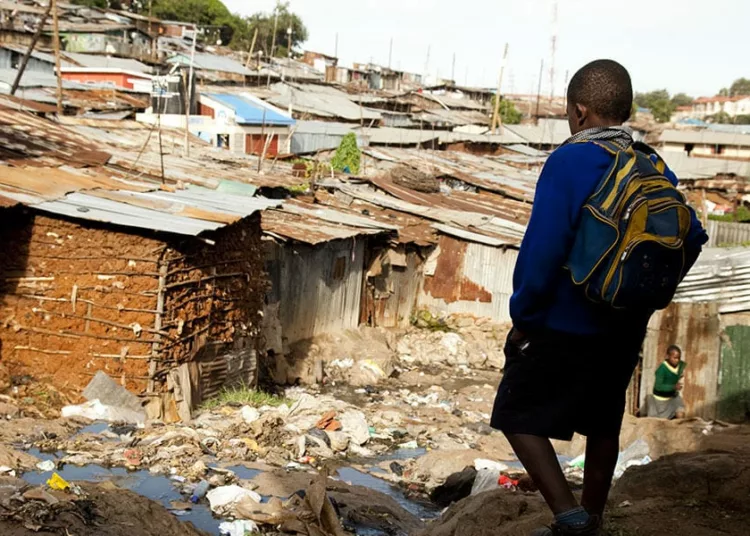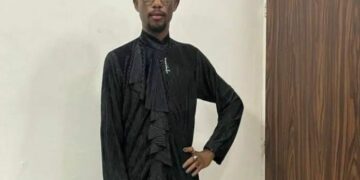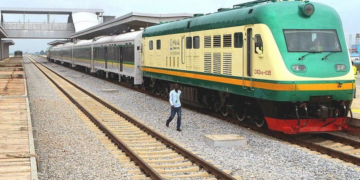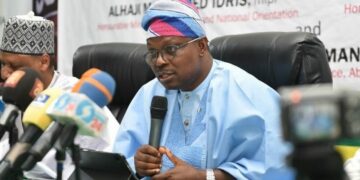A report by an independent, nonpartisan and innovative public policy think tank, the Institute for Governance and Economic Transformation (IGET), has revealed that Nigeria has become increasingly synonymous with poverty.
The report, however, suggested ways to lift 100 million Nigerians out of poverty.
The National Bureau of Statistics (NBS) had a few days back disclosed that 133 million Nigerians are multi-dimensionally poor.
Coming sequel to the NBS report, the goal of the latest report titled, “Nigeria’s Poverty Trap-and How To End It”, is to “understand” the Nigerian poverty trap, its dimensions, effects and potential solutions, while also offering directional policy recommendations.
The report which was made available to LEADERSHIP yesterday in Abuja was co-authored by the founder of IGET, Prof Kingsley Moghalu, and Dr Damian Kalu Ude disclosed that poverty and conflict have combined to make Nigeria a fragile state.
While the federal government of Nigeria has made significant efforts to reduce poverty in Nigeria, the report said the evidence of current poverty numbers and trends suggests that the scale of the problem far outstrips the government’s capacity at this time to defeat the scourge of poverty.
It noted: “To put it another way, Nigeria has become increasingly synonymous with poverty. A full-scale war must be waged against poverty – and won – if the country is to have any real future. This requires a political elite consensus across partisan divides.
“This challenge must now become, along with insecurity, the central issue in the economic and social challenges confronting the Nigerian State. Nigeria’s political leaders must also consider their own enlightened self-interest as a class: increasing levels of poverty will lead to a further breakdown of security and, inevitably, to social unrest.
“When the Chinese political elite under the leadership of Deng Xiaoping began the process of building an elite consensus on economic reforms and the eradication of poverty, they were also motivated by the need for the Chinese Communist Party to continue to maintain political control of the country.
“They realised that the rate of extreme poverty in China in the mid-1970s, when China’s GDP per capita was much lower than Nigeria’s, posed a strategic threat not just to the country, but to their positions and hold on power.
“Without a focus, a consensus, and a comprehensive plan and effective system to combat poverty, a fixation on achieving economic growth without vastly increased levels of human capital, would be a missed opportunity. Such a plan must combine market approaches and stronger social protection, with an accent on effective targeting, expanding coverage, and measuring performance.”
Suggesting how to lift 100 million people out of poverty, the report said it is clear that much needs to be done to help lift millions of Nigerians out of poverty.
The report recommended some approaches and interventions, including starting with elite consensus which should be framed, and a bargain struck, that taking 100 million Nigerians out of extreme poverty is the primary goal of politics and governance alongside the imperative of national security.
“This consensus, and the bargain that leads to it, is important because politicians and policymakers often tend to be influenced more by economic growth numbers, without a full appreciation of the reality (as we have seen in Nigeria), that a national economy can grow in GDP terms but without addressing poverty. In other words, it is possible for an economy to be growing while significant numbers of a population are getting poorer.”
Secondly, the report said the elite consensus approach, which is anchored more on political economy than simply on technical policy, accords with the reality that the factors that most affect Nigeria’s economy, including the prevalence of poverty, low productivity and systemic corruption, are mainly issues of political economy – the relationships between individuals, government and its institutions, and public policy.
It said however that the elected President of Nigeria in the presidential elections scheduled for 2023 must begin the process of building this elite consensus.
Such a consensus, the report added, must necessarily involve sacrifices on the part of the elite.
This, it said, may include giving up some self-seeking advantages in return for other opportunities, provided the focus shifts to creating opportunities and investments for wealth-creation for the urban and rural poor.
It stated: “Given that it will be difficult to achieve complete unanimity within the elite class – former heads of state and retired military generals, leading politicians across the political parties, the most influential traditional rulers and clergy, the Organized Private Sector, media proprietors, and civil society – specific individuals in each of these subsets of the most influential elite need to be engaged, persuaded to the consensus and the inherent bargains, and deployed to widen the “consensus net”.
It further said, “A fundamental aspect of this elite consensus must be clarity on the philosophical foundations for the huge effort that will drive the process of development transformation anchored on lifting 100 million extremely poor people out of poverty and into the middle class. To be consistent and robust, Nigeria’s policy choices must be anchored on an understanding of the roles of the state and the market, the balance between the two, which pathways to utilise – state-leaning or market-driven or the precise weights to attach to the two broad choices where combinations from each are to be deployed.
“This requires a careful interrogation based both on evidence from other countries, and Nigeria’s unique circumstances. These circumstances include the reality of weak institutions and a lack of state capacity, suggesting that no matter what path the political or elite consensus will take, strengthening the capacity of the state and its institutions to a level of minimum credibility that is presently lacking is an urgent priority. To begin with, therefore, effective reform of the civil service addressing its size, capacity for service delivery and its remuneration is inevitable.
“The incoming Nigerian government after the elections in February 2023 should increase public spending on health and education, bolster productive jobs, and improve the effectiveness of social protection. The share of the education and health sectors in the federal governments and state governments’ budgets should ideally be not less than 20% for education and 15% for health.
“These should be carefully targeted investments, not wasted on recurrent expenditures. For education, for example, targeting poverty effectively in a foundational manner requires investments in teacher training, curriculum reform, and learning methods that focus on training young people in skills (including technology) and creative thinking–as opposed to the prevalent rote learning approach of “cram and pour”–that are relevant to job markets in the 21st century.”
In healthcare, the report said investments should target expanding effective and affordable primary healthcare in rural areas.
It explained that implementing pro-poor initiatives will require unlocking fiscal space; abolishing expensive subsidies for consumption (including petrol subsidies), alongside countervailing measures to protect the poor as reforms are effected.
Regarding petrol subsidy, for example, the report noted that abolishing the fiscal practice, which in Nigeria is based on questionable assumptions about petrol consumption levels and in 2022 received an allocation of N4 trillion, should be accompanied by investments in subsidised public transport systems in all Local Government Areas in all the 36 states and the Federal Capital Territory to cushion the impact of subsidy removal on the poor and to help check inflationary trends that could arise from increased transportation costs.
It said, “This subsidized system, to be developed in a collaboration between the central and state governments, would require in reality only a small percentage of the fiscal resources presently spent on petrol subsidies by the Federal Government of Nigeria.
“The balance saved from further spending on the petrol subsidy, which in our estimate would not be less than N3.5 trillion per annum, would be better invested in social infrastructures such as education and healthcare, and targeted, transparently managed and effective social protection for poor citizens.
“Other structural reforms guided by evidence are urgently needed to foster and sustain pro-poor growth and raise Nigerians out of extreme poverty. These include macroeconomic reforms that include expanding the tax net for improved fiscal revenue generation but not raising taxes on businesses or consumers, introducing a wealth tax for Nigerians with very high levels of personal wealth, reduction of waivers to individual companies with the exception of tax-reductions-for-infrastructure construction deals, and the abolition of multiple taxations on small businesses.”





